War after war: Yemenis in Ukraine face familiar horrors as conflict forces them to flee once more
People who fled civil war in Yemen seven years ago and started new lives in Ukraine now fear for their future again as Russia’s onslaught escalates, reports Charlene Rodrigues

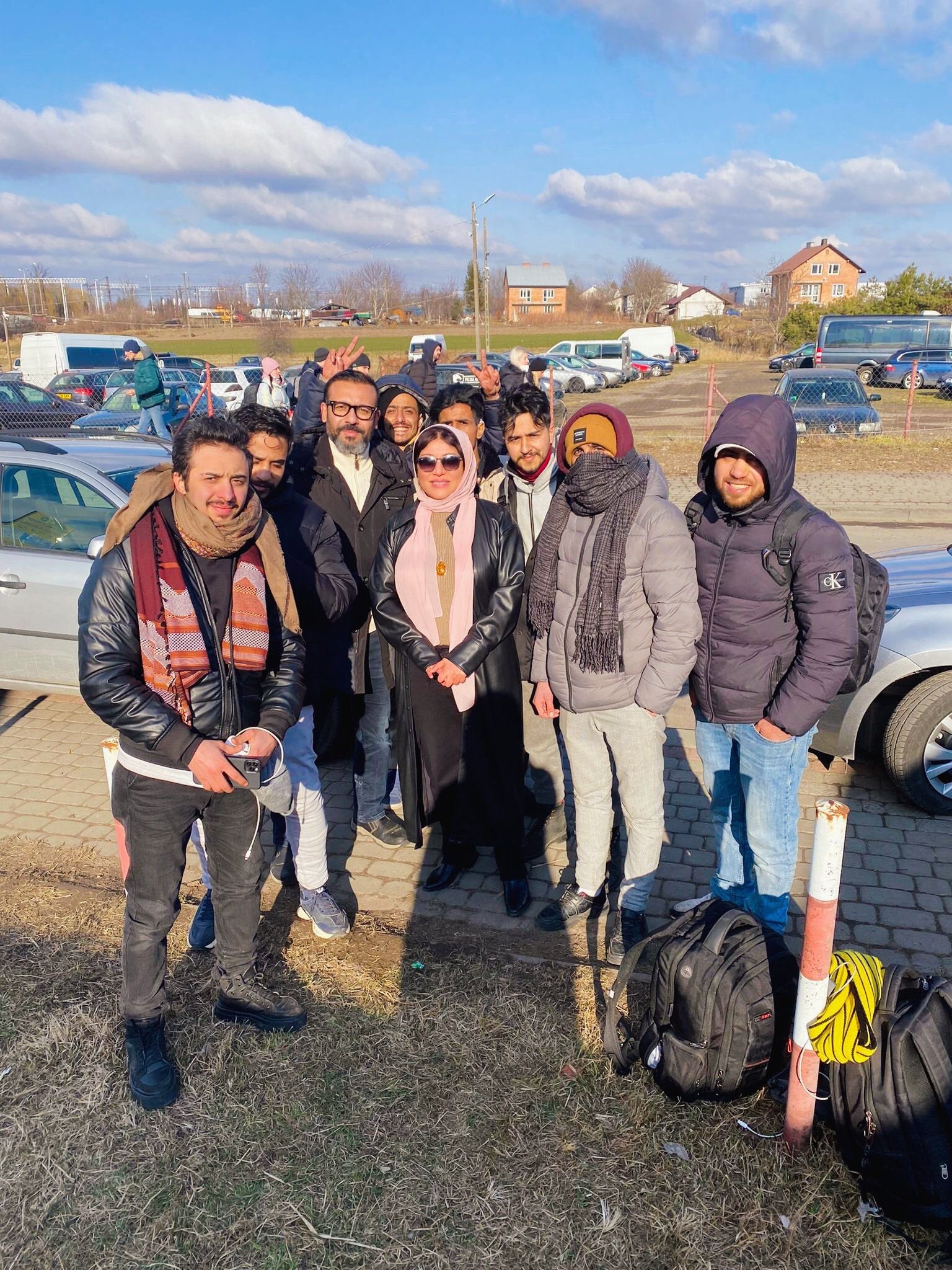
After spending another night huddled in an underground bomb shelter in Kharkiv’s metro station as Russian shelling intensifies in Ukraine’s second-largest city, Yemeni student Khaled Bin Jaah returned to his flat only to find his building surrounded by fire and smoke as fighting raged in the streets.
“Now the situation is very dangerous,” he told The Independent by phone on Wednesday, as Russia’s invasion entered its seventh day.
Mr Bin Jaah shared photos taken from his flat that showed a fire on a nearby street and said shrapnel had shattered his windows.

“When the situation is calm, I will go to the metro [station]. I am really shocked by everything that is happening in this beautiful country that I considered my second home,” said Mr Bin Jaah, who was studying aerospace engineering at the Kharkiv Aviation Institute before war broke out last week – but now believes his dream of becoming a pilot is dead.
Russian forces have launched a heavy bombardment of Kharkiv, where shelling has killed at least 25 people and injured at least 121 as Russian paratroopers attacked the city overnight and on Wednesday morning.
The scenes, sounds and even smell of the carnage are haunting, Mr Bin Jaah said, and eerily echoes what he witnessed at home in Yemen’s capital, Sana’a, seven years ago before he fled civil war there and found refuge in Ukraine.
And as Russia pummels Ukraine, he finds his family fearing for him. “I miss them so much. My grandfather and my aunt passed away while they were waiting for me to return. This was painful for me,” he said, adding that he also worries about his relatives caught up in Yemen’s protracted eight-year-long war.
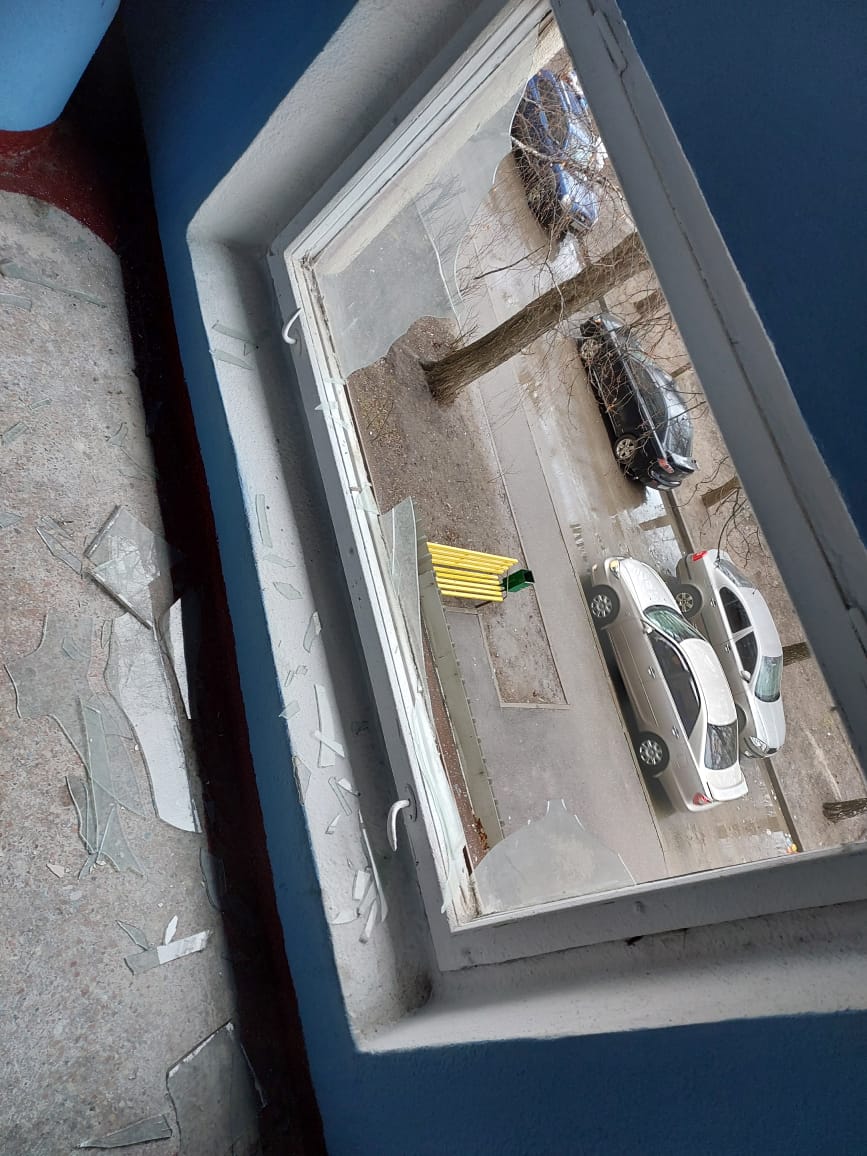
The exact number of Yemenis in Ukraine is unknown, but hundreds are believed to have arrived in the country after fleeing conflict at home in 2015.
Yemen’s embassy in Kyiv had registered about 300 of its citizens in the country before the invasion began while community organisers and volunteers online said they had identified a group of 400 Yemenis on Monday.
Dozens are believed to have fled the country and crossed into Poland in recent days, but for many other Yemenis, including Mr Bin Jaah, leaving Ukraine is not so simple – leaving them with the bleak prospect of living through another war just years after enduring conflict in their homeland.
“I do not have a Ukrainian passport or permanent residence, I have a temporary residence and it will expire after three months,” he said.
An unresolved issue while trying to renew his Yemeni passport coupled with the lack of documents could hinder his ability to find refuge in a neighbouring European country, he added.
Some of Mr Bin Jaah’s friends managed to get to Ukraine’s border with Poland and told him they were shown respect by Polish border guards and allowed to enter the country. Their experience is far from universal, with numerous reports of non-European refugees – mainly Africans – being subjected to discrimination and racist abuse while trying to flee and being blocked at border points.
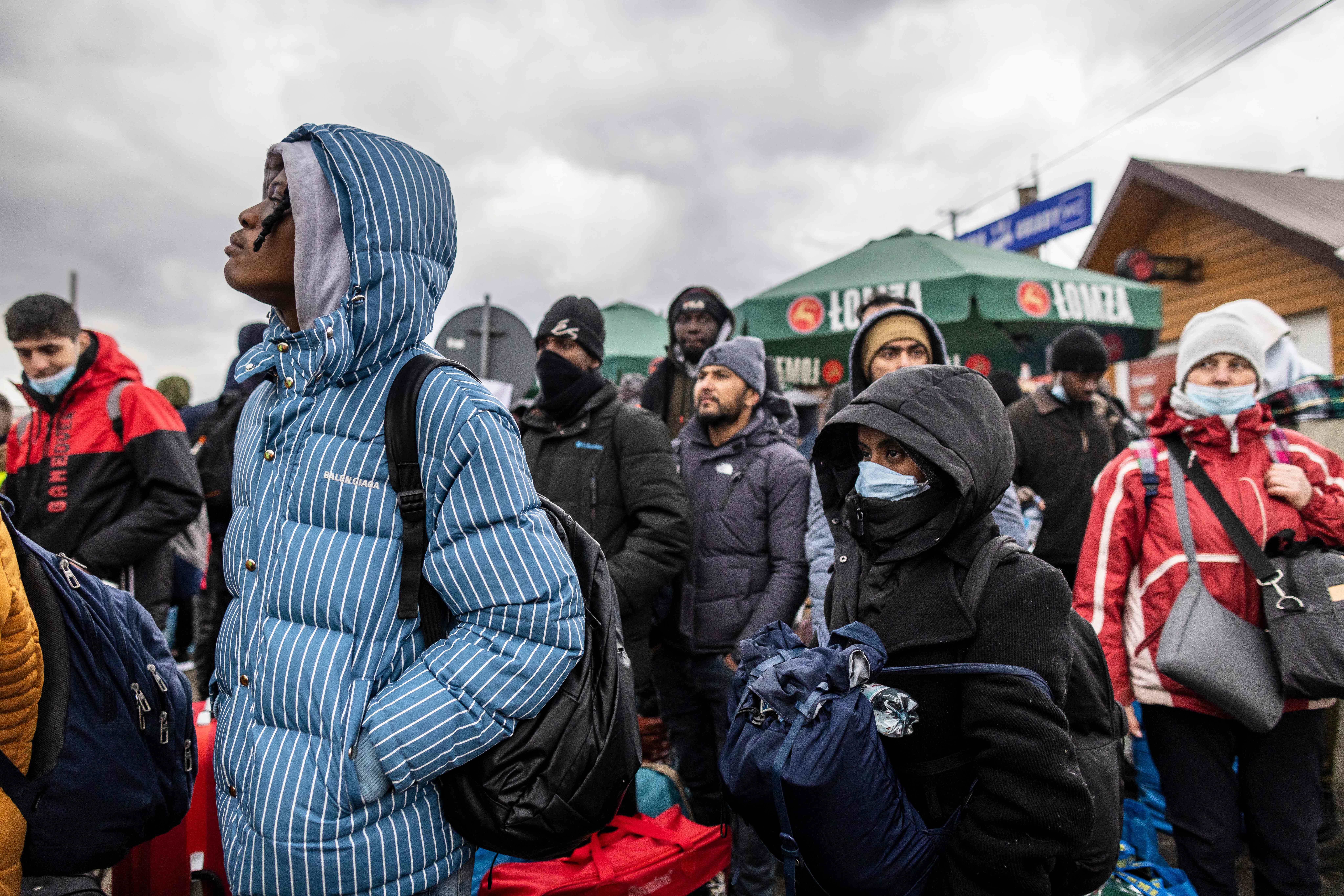
Dr Mahmoud Aljedhi, a Yemeni dentist, arrived in Warsaw from Kyiv on Wednesday morning after travelling on a packed train for more than 24 hours, standing for the whole journey with his two young children and wife.
“We have had no time to think, to breathe, it was crowded, a lot of people fighting each other. Everyone is thinking about himself, ” he told The Independent by phone as his family headed to temporary accommodation in Poland.
In the absence of a functioning government, Sana’a-based Reem Jarhum, along with fellow Yemeni youth and international volunteers, have risen to the occasion by co-ordinating evacuations from Ukraine, raising funds, organising housing and rallying EU officials to support their friends marooned in the country and outside, along the borders.
As of Wednesday, Ms Jarhum said at least 67 Yemeni students had crossed the Polish border. Two days earlier, a group of students who said they had been stuck on the border for more than 24 hours were finally granted entry to Poland.
On 28 February, they said they located another group of 400 Yemenis, including women and children. Still, a significant number of Yemenis are believed to be currently stranded in cities including Kharkiv, Kyiv, Kherson and Poltava, due to a lack of transportation and paperwork.
Prior to the invasion, Yemen’s ambassador to Poland and Ukraine, Dr Mervat Mojali, said the exact number of Yemenis in Ukraine was hard to determine.
Fleeing another time, it’s just a disaster
“About three hundred citizens have registered so far, and we expect the numbers to increase,” Dr Mojali said a few days before the invasion. The online organisers and volunteers told The Independent that a number of other Yemenis had registered with the embassy since the invasion began.
In the Yemen foreign ministry’s latest update, it said on Monday that 18 of its citizens had left Ukraine through Poland, while four others were evacuated through Romania. Last week, the government said it had formed a crisis room to follow the conditions of Yemeni nationals in Ukraine.
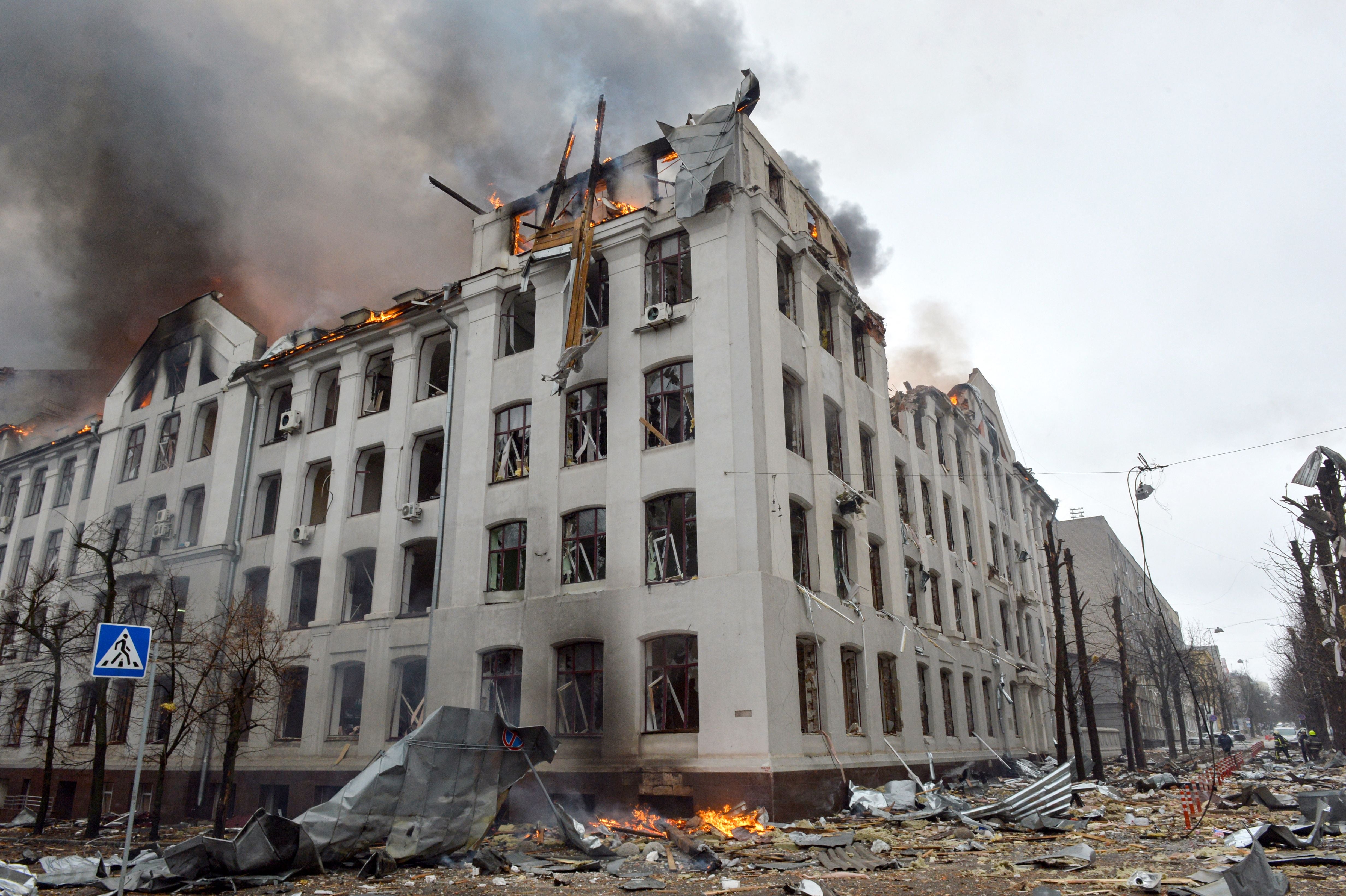
Ukrainian-Yemeni humanitarian worker, Maryam Shujaa has fond memories of growing up between Yemen and Ukraine. Her mother is Ukrainian from Vinnytsia, and her father is from Ibb in Yemen.
When the Saudi-led coalition intervened in Yemen to fight the Iran-aligned Houthi rebels in March 2015, Ms Shujaa and her family fled on a Russian evacuation plane to Kyiv.
“I wanted to guarantee them a decent life,” she said. She along with her three children, Lina, Laila, and Yazan, relinquished their Yemeni passport for Ukrainian citizenship because Ukraine doesn’t allow dual citizenship.
Ms Shujaa and her family recently travelled to Cairo, before the invasion, on tourist visas in order to process her Yemeni husband’s Ukraine entry visa, and now find themselves in limbo – unable to return to their home in Kyiv and unsure about what to do next.
“Fleeing another time, it’s just a disaster,” she told The Independent. “After all that I worked for, I am losing for the second time.”
Ukraine is on the brink of a humanitarian catastrophe and the conflict is likely to increase fuel and food prices in Yemen – which is enduring its own humanitarian crisis and is on the brink of famine – the UN and aid agencies have warned.
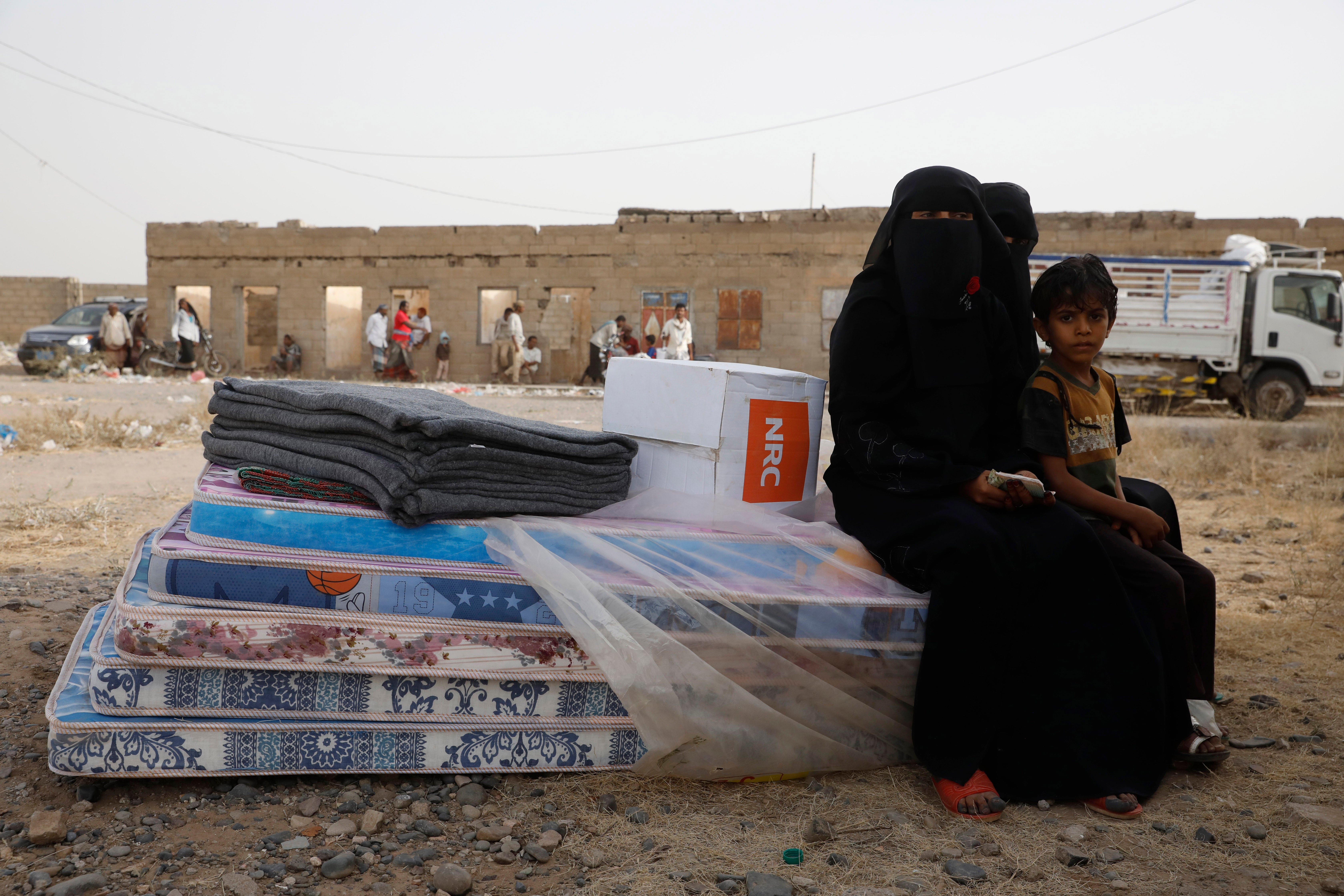
Going back to Yemen would be suicidal for Ms Shujaa and her family. And returning to Kyiv is not an option.
“We just forgot what we lived through in the war in Yemen and got used to a normal life,” she said, explaining how her children had settled in schools in Kyiv and made friends. “I never thought about moving to a European country before but I know that’s very difficult for Yemenis.”
While Ms Shujaa considers her family’s next move, she is struggling with how to explain the situation to her children, who keep asking “when are we going back home?”
She does not know when she will have an answer.
Join our commenting forum
Join thought-provoking conversations, follow other Independent readers and see their replies
Comments
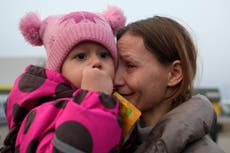




Bookmark popover
Removed from bookmarks